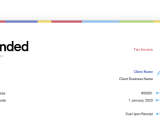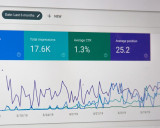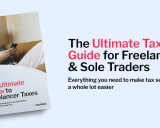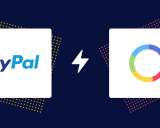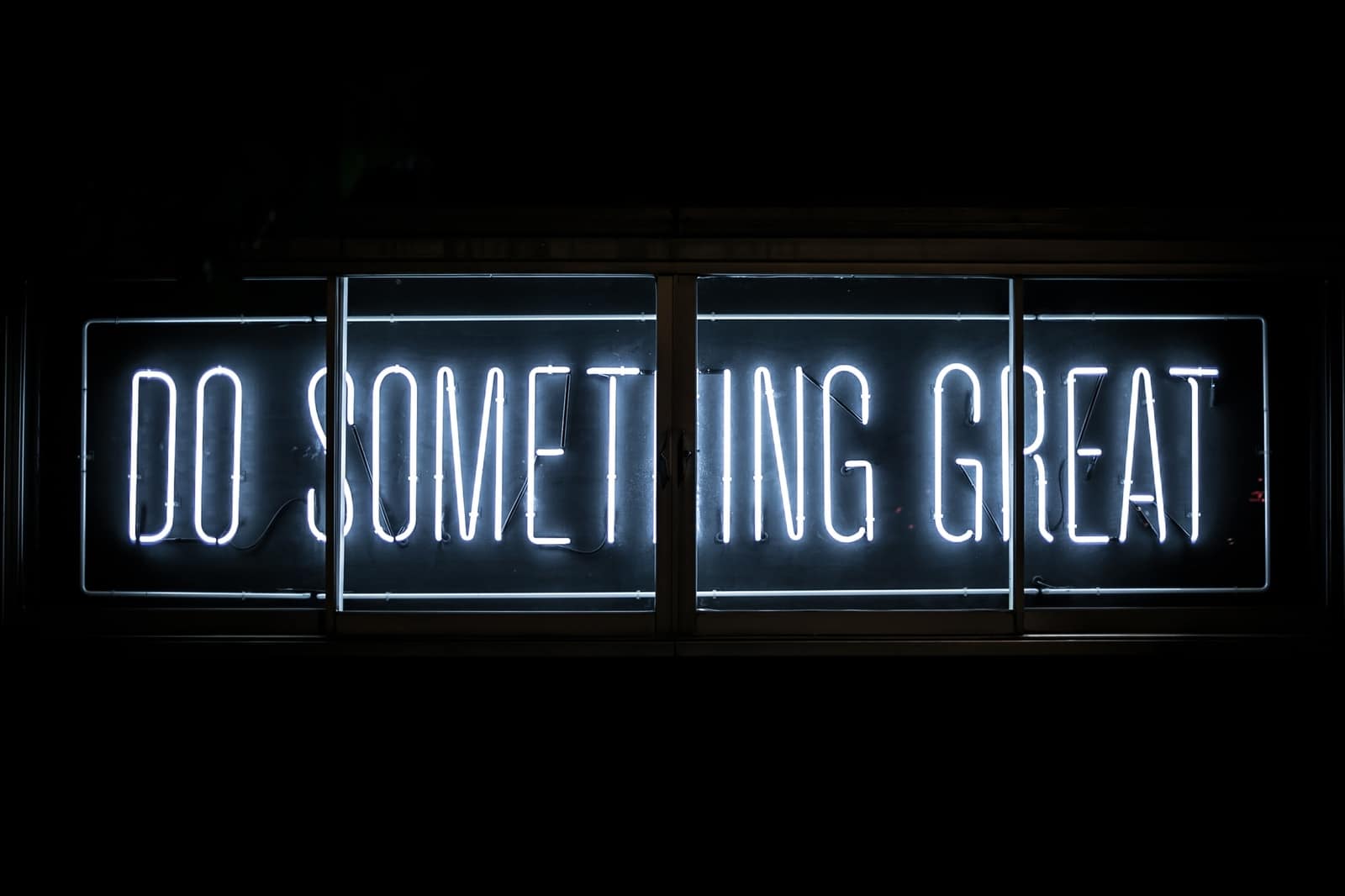
Ready to start working for yourself? Ask yourself these 7 questions
If you’re getting serious about working for yourself, it’s natural to feel some trepidation. We put together seven questions you can ask yourself to know if you’re ready to make the dream a reality.
Article contents
− +-p-1600-(1).jpeg)
In 2020, many Australians learned a valuable lesson: Working from home, with a flexible schedule, was not only possible but genuinely enjoyable. Being stuck at home taught us that the dreary nine-to-five lifestyle wasn’t a necessity anymore, thanks to technology and employers’ newfound appreciation for remote work.
The desire for workplace freedom is nothing new. In Australia alone, more than 11% of our workforce was already freelancing, back in 2018.
If you are considering joining their ranks, it’s easy to get bogged down by a million thoughts about whether it’s the right decision.
We’ve put together seven questions that will help you envision what life as a freelancer might look like. By the end of this article, you should have a deeper understanding of whether you’ll mix well with the sole trader career style.
We recommend getting out some pen and paper as you read, so you can use it as an action list when you’re ready.
1. What are the top skills you have that you could use in your freelance career?
Figuring out what you actually want to do when you start working for yourself can be the hardest question of all, so let’s tackle it first. To be successful, you’ll need to have a good vision of what it is you do, and how you will differentiate yourself from others in the field. We’ll get to those areas later, but for now, let’s focus on you.
Here’s where the pen and paper can come in handy. Start making two lists:
The first list will be your “hard skills”—unique abilities you have that can be applied directly to a line of work. For example, if you’re a graphic designer, you might include things like experience with Photoshop and logo design. A web developer might list out the coding languages they have used.
The next list will be your “soft skills.” Think on a more personal level for this one. What personality traits and positive habits do you have that will be valuable for your clients and customers, whoever they may be? Are you extremely organised? Quick with numbers? Great at public speaking? These types of skills can be just as valuable as those in your first list.
Take your time with this exercise, and don’t hold back (even if you aren’t sure you’ll ever use a certain skill for work reasons). Hold on to these lists when you’re done—we’ll use them in the next question.
2. What kind of business could you build off of your skills and experience?
You’ve got a nice list of all the things you’re good at, so how can we turn those skills into a career that could earn you a comfortable living? To answer that question, you need to do some research around what’s already out there.
This is a topic we covered in our article 16 work-from-home jobs and how to get started. You can also turn to Google for information about your specific line of work. Try examples like these:
“Best jobs for freelance digital marketers”
“How much do freelance contractors make”
“Freelance accountant job descriptions”
If you don’t have work experience that you can relate to a future in freelancing, then turn to your list of soft skills. These you can use to research phrases like:
“Best freelance jobs for creatives”
“Freelance soft skills in demand”
“Freelance jobs for detail-oriented people”
You’ll find countless articles and resources and likely stumble upon some people who are already making a living in these freelance careers. To get you started, here are a few of our favourite resources for freelancers:
Take note of things like how much people make, how many hours they work, and how competitive the market is.
You can take this a step further by using social media to find people who are already doing what you think you might want to do. Run a search for your skills or experience on LinkedIn or other platforms, and start following the people who seem to be doing what you want to do. You can even reach out to them with a polite message asking for advice or specific questions—you’ll find most freelancers are quite friendly and happy to point you in the right direction.
3. Where are the gaps in your experience and skills?
As you research your potential freelance job opportunities, you may come across certain skills that you need, but don’t currently possess.
Unfortunately, some people are put off freelancing until they feel like they have every single skill they’d need to succeed. This can hold you back, so it’s best to focus on the skills that are absolutely necessary, and make peace with the idea that you’ll learn the others later on.
Since we already have a list of your skills from question one, and examples of what careers may be viable in question two, all we need to do is find the gaps.
As you start to list out the areas where you think you could up-skill, start assigning each item a priority. You can use a three-point rating system for this:
1 point: I need this skill before I can start freelancing.
2 points: I will eventually need this skill, but I can get started before I pick it up.
3 points: This would be a nice skill to have, but I can work on that once things are running smoothly.
If you decide you want to start freelancing, then you can use this list as a timeline for launching your new career. Estimate the time it will take you to complete all of the items that have only one point. For example, you might need to dedicate a weekend to reading a few articles about a certain subject, or give yourself a few weeks or months to take a more in-depth course.
At this point, you should have a decent idea of what’s possible for your freelance career, and what you’d need to do to prepare.
4. Where will you find your first clients?
This can be a nerve-wracking question, especially if you’re used to working for someone rather than having to find your own clients.
The truth is, there are many different ways you can find clients for your business. Eventually, you’ll develop your own marketing strategies that will help you maintain steady work.
When you’re just starting out, the easiest place to find clients is through your existing network. Don’t worry—we aren’t going to suggest you start badgering your friends and family to hire you.
There is a reason, however, that word of mouth is by far the most common way for freelancers to get work. In fact, a Freelance Jungle 2019 study of Australian freelancers, the top 7 most popular ways to find work all have to do with referrals and networking.
When you start freelancing, it’s a good idea to be quite open about it with your friends, family, and when appropriate, colleagues. You never know when someone in your network will know that person who needs a photographer or copywriter. The more people who know your name and what you do, the more likely you are to have people coming to you for help.
You can actively build your network by connecting with people who are in the same line of work as you. LinkedIn and Facebook both have groups for nearly every industry and type of freelancer under the sun. Start joining in conversations and asking questions, and your network will grow. This network will eventually become your go-to source for your first clients.
6. How will you start showcasing your work?
In addition to honing your skills, there’s something else you’ll need to start a career as a freelancer in the right way: a portfolio. Examples of your work will make it much easier to secure your first clients.
Eventually, you may have your own website where you can showcase your work. But you don’t need to wait until you have a site before you start assembling and perfecting your portfolio.
Take a look back over the work you’ve done already—can you use any of it to show prospective clients what you do? If so, you’re already one step ahead. If not, then you might need to get a little creative.
One option is to start with testimonials. Do you have any former colleagues or people you’ve worked with who would be willing to give you a reference or a quote you could use?
If you don’t have any sort of past work or testimonials you can use for the foundation of a portfolio, then think about how you might be able to get some work examples from other places.
For instance, let’s say you want to be a freelance blogger. Can you write a few blogs on subjects you are passionate about, and publish them on Medium or LinkedIn? A freelance photographer could ask friends over to do a photoshoot, or a web developer could design a simple app to show prospective clients.
You can also look for mentors who would be willing to help you build up a few examples of work. We don’t encourage you to do unpaid work for other people, but if you think there’s someone who would give you a chance to work on a project that you could then use for your portfolio, it may be worth giving them a discounted rate.
You don’t need to have a full, perfect portfolio before you work. But you should factor the time it will take to get at least three or four good examples under your belt before you really dive into freelancing.
5. Do you need a financial cushion?
One of the keys to being a successful freelancer is knowing how to deal with your finances. Before you can begin, it’s a good idea to start thinking like a freelancer by examining your current income and potential expenses.
If you don’t already have a budget for yourself or your household, now’s a good time to start drawing one up. You want to have a good handle on how much money you’re currently bringing in, and an idea of how much you spend on your lifestyle—things like dining out, public transport, travel, rent and bills, etc.
When you work for yourself, it’s always good to have some extra money set aside for unexpected changes in work. If you don’t have this already, it may be time to find ways to save or earn some money until you’re ready. But how much do you need to save?
Once you have a budget drawn up, you’ll know how much you need on average every month to maintain your lifestyle. The only other thing to factor in is how your freelance lifestyle might change your income.
For example, are there specific tools you will need to pay for when you start freelancing? Perhaps you’ll need to start paying for a Zoom account, or need to budget for an online course. There may also be ways that your freelance life can save you money—perhaps you can cut back on transportation expenses or expect to eat fewer expensive take-out lunches.
Once you have an idea of how much you’ll need every month, you can start to build yourself a cushion. Ideally, you’ll be able to save two to three months’ worth of living expenses, but that’s not always possible for freelancers who are just starting out. How much you save depends greatly on your current situation, so take time to look over your budget and choose a savings target for yourself.
6. What will your workspace look like?
As a freelancer, you’ll be the commander of your own workspace. It will be up to you to design a healthy, happy place for you to conduct business—one that helps you maintain productivity, feel at rest, and most importantly, maintain a healthy work-life balance.
You won’t last long working at home if you’re crouching over a cramped desk or working from the kitchen table while your family is having breakfast.
You may have already carved out a space for yourself if you currently spend time working from home. When you become your own boss, you’ll be spending a lot more time there than you normally would, so it’s still a good idea to think about how you can transform the space to suit your needs.
Check out our article Essential home office ideas for freelancers for a list of the basics to consider when planning a healthy work-from-home space. Keep track of the things you purchase for your home office—there’s a good chance many of them will be tax deductible. (Here’s more information on what you can claim on taxes as a freelancer.)
Remember that though you will likely want a “home base,” you won’t be chained to this spot forever. Some freelancers may choose co-working spaces or opt to go out to cafes for a change of pace.
Others may be choosing the freelance style so they can travel the world while working. If you fall into that category, you can still put this question into practice. What will you need to work while traveling? There are plenty of blogs and social media groups out with solid advice for nomadic freelancers.
7. How will you cope with working on your own?
For some people, the hardest part of switching to freelancing is the loss of regular contact with colleagues. Working on your own is a different game—you likely won’t have nearly as much of a “work social life,” at least at the start.
This may sound like a good thing, especially if you aren’t the biggest fan of working with others and really enjoy time on your own.
But many freelancers will find this new style of solo working to be a challenge at some point. You may find that not having colleagues around impacts your productivity, or leads to feelings of loneliness and isolation.
Of course, there are ways to combat this. You can work in public, go to networking events, visit co-working spaces, or focus more on your non-work social life.
If you feel like the solo-work lifestyle might be a challenge for you, it’s best to start thinking about how you’ll combat this now before you decide to start freelancing. This can mean scoping out cafes and public libraries in your area, or setting up regular coffee dates with friends throughout the week.
Recap: Making the decision
If you spend the time thinking through these questions, you should hopefully have a good idea of whether you are ready to start freelancing.
You know what skills you have and whether they are viable for the lifestyle you want.
You know what areas you need to work on, and where to begin growing your network to gain experience and prepare for clients.
You have a plan for saving money if you need it, and you know what you need to do to make a comfortable, happy working environment for yourself.
The next step is getting started. There are many other resources on our blog that can help you get started, but here are a few to kick things off:
Contents
Join newsletter
ABOUT ROUNDED
Invoicing and accounting software for sole traders. Get paid faster and relax at tax time.
